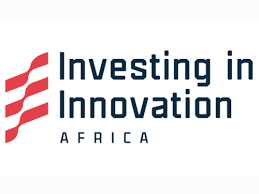Investing in Innovation Africa (i3) is a pan-African programme for entrepreneurs that are defining the future of healthcare supply chains, and it is now accepting applications from prominent innovators for its second cohort.
The commercialization of sixty promising early and growth stage firms is being supported by the i3 initiative, which is being funded by the Bill & Melinda Gates Foundation and sponsored by AmerisourceBergen, Merck Sharpe & Dohme (MSD), Microsoft, and Chemonics.
This programme helps African-led supply chain innovators engage with donors, industry partners, and government partners in order to power the growth and impact of African entrepreneurs. Selected firms each receive a targeted introduction to clients, a grant in the amount of US$50,000, and specialised investment readiness support.
These benefits are intended to enhance commercialization and impact. i3 gives special consideration to businesses run by women and those located in francophone areas when making investment decisions.
Read also: Nigeria remains leader in venture Innovation, Investments
Challenges i3 is Addressing
The supply chain for medicines and vaccines is one of the most intricate since it is highly dependent on error-proof temperature control, the fulfilment of tight border requirements in a variety of locations, and logistics systems that guarantee the authenticity and safety of the products throughout the whole production process.
Patients could be put at risk of receiving poor or fake medications, which would have a negative impact on public health if even a single weak link in the distribution chain were to cause vital medicines to become ineffective or even potentially hazardous.
Poor infrastructure, inadequate policy or regulatory implementation, and infiltration by substandard or fake drugs are just some of the challenges associated with medicine and vaccine supply chains in Africa. Other challenges include stock-outs, poor supply chain practises (such as poor inventory, poor forecasting, etc.), and insufficient human resources, amongst others.
The cold storage network is particularly important to the vaccination supply chain. Unfortunately, inferior vaccine storage facilities have been identified as a serious concern in many African countries, with numerous health facilities missing basic infrastructure. This is a challenge that affects a number of African countries.
The unreliability of the power supply in Africa is another significant challenge for the management of the vaccine supply chain there. This challenge results in fluctuations in the temperatures of the vaccines, and ice packs are frequently insufficient to keep the cold chain at the optimal temperature.
Financial Times lists Zone as Nigeria’s first blockchain startup
Innovative solutions aimed at strengthening the supply chain of medicines and vaccines in Africa
Due to the complexity of these problems, a multi-stakeholder strategy is required in order to create and execute new solutions that may be used to address these problems. This approach should involve policymakers, public and private sectors, as well as financial institutions. In light of these factors, Bloom Public Health suggests the implementation of the following methods in order to strengthen the supply chain for medicines and vaccines in Africa:
Utilising Screening Technologies (STs) for Post-Marketing Surveillance of Medicine Quality Screening technologies (STs) are indispensable tools for post-marketing surveillance of medicine quality in the medicine supply chain.
STs are able to promptly detect fake medicines in the field, using substantially fewer resources than typical quality control confirmatory technologies. This allows for an increase in the number of samples that can be evaluated.
They are helpful tools that make it possible for regulatory authorities and chemists to recognise dishonest suppliers and eliminate them from the supply chain. As a result, there will be fewer instances of adverse reactions and illnesses brought on by drugs of poor quality.
A validation study of two screening technologies that are routinely used for the fight against fake medications is currently being carried out in Nigeria by Bloom Public Health in collaboration with the University of Michigan and Innovations for Poverty Action (IPA).
Utilising public-private partnerships (PPPs) as a means of supplementing the work of the public sector: PPPs are absolutely necessary in order to assist in overcoming the limits in the medicine supply chain caused by monetary, technological, and human resources.
The collaboration between Bloom Public Health and the Ebonyi State Government in Nigeria for the Ebonyi Health Supply Chain Transformation (EHSCT) Project is a great illustration of a successful public-private partnership.
Applications i3 second call can be submitted online until the 26th of June. On September 14 we will make the announcements regarding the selected startups. The inaugural cohort consisted of 31 innovators who improved access to healthcare items across more than 24,000 hospitals, clinics, and pharmacies in 26 different African nations. The innovators were chosen in September 2022.




